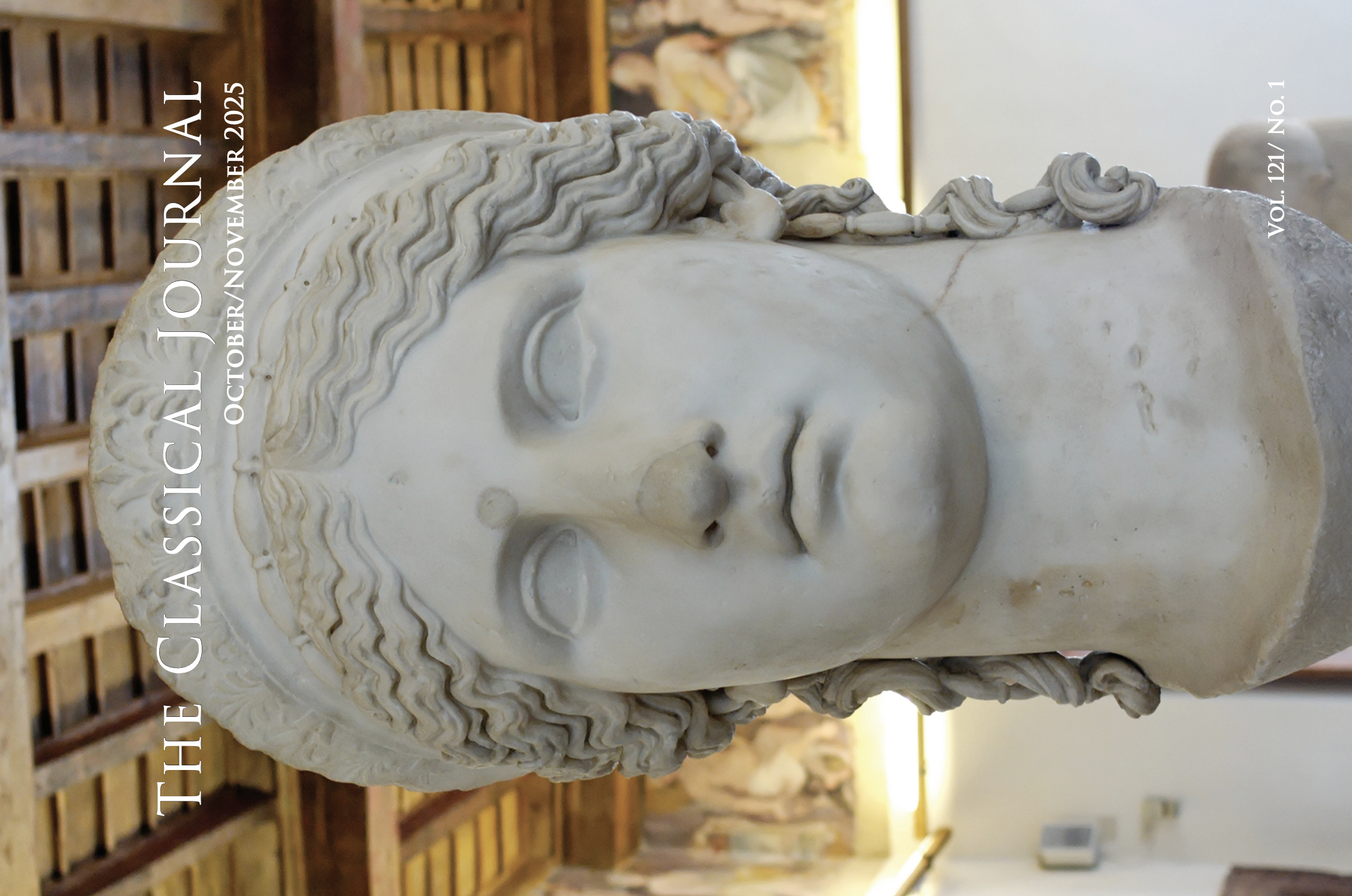The following articles are contained in CJ
120.3
Abstracts of Articles
The Verb Empoliteuō and Greek Citizenship Under Arsacid Rule
The primary translation for the ancient Greek verb ἐμπολιτεύω in several dictionaries is “to be a citizen, have civil rights.” That definition is untenable. The connotations of ἐμπολιτεύω for citizen status are usually indeterminate, but where they are clear, the verb has the opposite meaning and refers to non-citizens rather than citizens. This sense is crucial to the study of Greek citizenship in the Arsacid empire, because ἐμπολιτεύω appears twice in a key passage from Josephus on Greco-Babylonian relations in the poleis of Arsacid Mesopotamia. The verb’s dictionary definition has led some historians to the conclusion that non-Greeks were citizens of these poleis. Along with local evidence in Akkadian, a review of ἐμπολιτεύω’s appearances in literature and epigraphy suggests the opposite.
Agamemno Suppositus by Pomponius of Bononia: A Few Hypotheses
The Atellan farce Agamemno suppositus by Pomponius has been identified as a mythological burlesque similar to phlyakes. However, the comic element in this play has not yet been explored. In my article I argue that the participle suppositus suggests modelling of Atellana on palliata as it concerns a suppositio motif (a fraudulent
introduction of a child into a family) and that the theme of a heroic infancy might have originated from satyr-plays. I also show a possible connection between the discussed Atellan farce and lex Cornelia de falsis (81 BCE), a law which punished the crime of substitution of a child.
Morbid Joy: Laetus in Tacitus
Tacitus establishes and employs a sinister connotation of the word laetus and its cognates in the Histories and Annals. Laetus becomes disconcerting when happiness is inappropriate. Tacitus connects laetitia to death, deception and events that he imbues with dramatic irony. Comprising about half of the total instances of laetus in Tacitus, the sinister connotation encourages readers to be on the alert for disaster, foolishness and irony even in passages where laetus does not explicitly have a negative connotation. Sinister laetus reinforces Tacitus’ contempt for the failings of historical figures and cultivates distrust of happy emotions in his historical works.
Qua ex parte est Hibernia?: Ireland, the Irish, and Alterity in the antique Mediterranean Imaginary
Ireland’s peripheral remove from the Mediterranean core allowed ancient authors to populate this exotic elsewhere with an “imagined geography,” an “imagined ethnology,” and an “imagined menagerie,” absent firsthand evidence about the place. Authors emplace Ireland inconsistently, sometimes to the north of Britain, sometimes to the west. This variance was purposeful and aligns with the rhetorical and compositional ambition of the given author’s ethnographic imagination. Authors viewing Ireland as a total repository of dangerous alterity place Ireland northward, and those viewing Ireland with imperial ambition place it westward. Humoral climatology, and the ethnic thinking it engenders, explains this variance.


